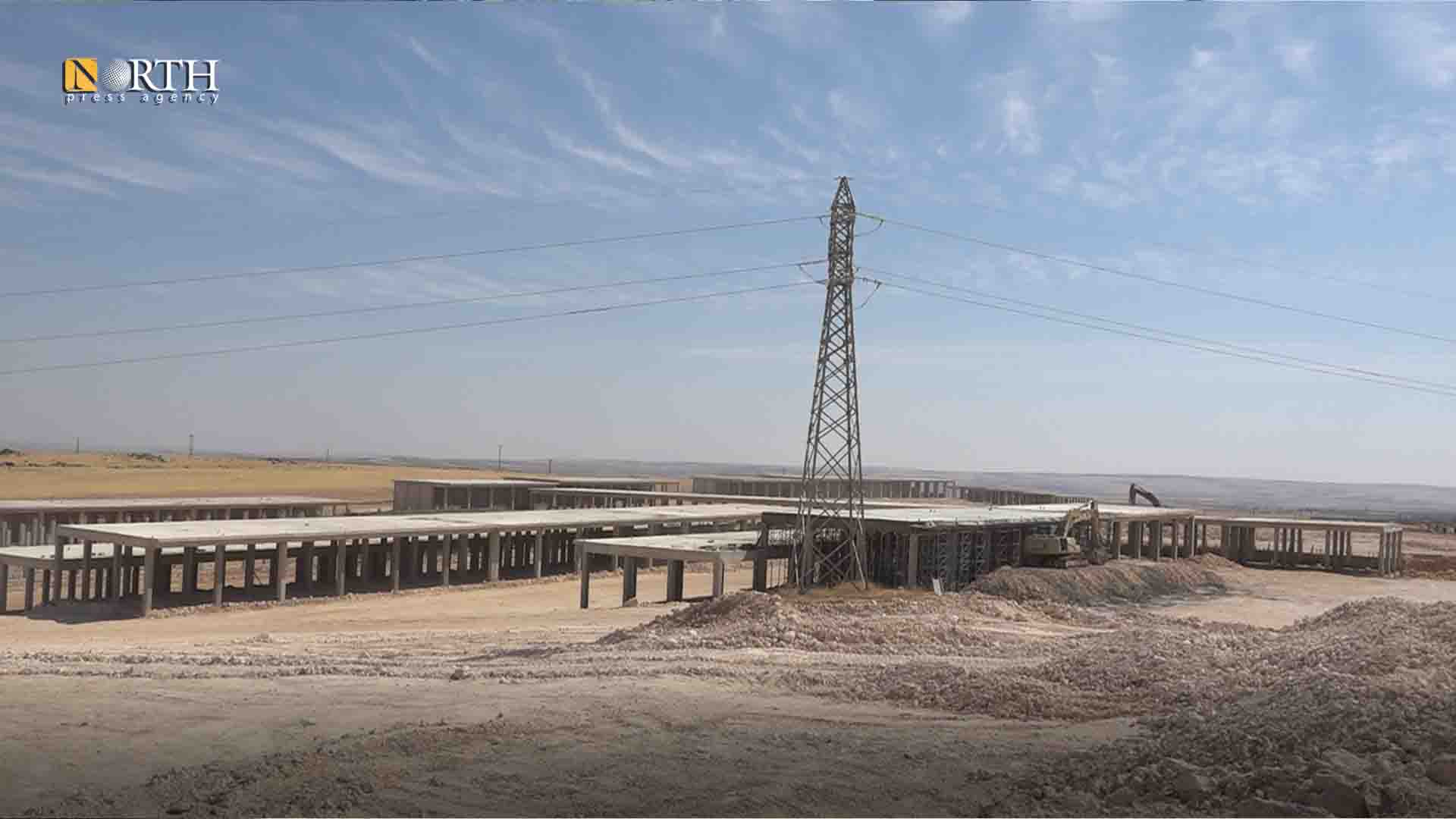KOBANI, Syria (North Press) – Most of the industrialists in the city of Kobani, northern Syria, are waiting for the completion of the industrial zone project outside the city to move to their stores, which they paid for in installments years ago.
The participants hope that the project will help rid them of the burden of paying rents for shops in the al-Sinaa neighborhood inside the city, organize their work, and reduce noise near residential neighborhoods.
Ahmed Hajj Hussein, the owner of an engine parts store, says that he used to pay about 150,000 SYP per year to rent the shop five years ago, but the amount has now increased to 500,000 SYP annually.
Hajj Hussein registered for a store in the industrial zone and paid some installments, as he was supposed to take over his shop during the year 2020.
The Turkish attack on Sere Kaniye (Ras al-Ain) and Gire Spi (Tel Abyad) at the end of 2019 stopped many renters from paying installments and thus delayed the opening of the shops.
Hajj Hussein notes that the municipality told them in the last meeting, about six months ago, that the opening of shops would take place in the eighth month of this year, but that has not been done yet.
The cost of the industrial zone project is $3.308 million, and it occupies an area of more than 193,000 square meters.
The area includes more than 800 stores, some of which are small, five meters wide by six meters long, and others large, five meters wide by 12 meters long, in addition to a garage of 200 square meters.
Shopowner Mustafa Hassan Fayad said that the shop rents were cheap, but they have increased a lot.
He believes that the industrial district inside Kobani is causing inconveniences for residents due to the noise and overcrowding.
Fayad said, “Industrialists in the industrial zone will be close to each other, as it will be easier for the customers too. Here, when a customer or friend comes, we cannot receive him inside the store because it is so small.”
“In addition, the large area of the shops in the industrial zone will allow more comfort in working, with the possibility of adding some beneficiaries,” Fayad added.
Many store owners believe that moving to the industrial zone will solve the problem of iron waste in the industrial district, which damages car tires, as well as the problem of machinery noise that disturbs neighbors.
The industrial zone project began more than two years ago and was supposed to be completed before the new year.
The new industrial zone project is located near the village of Kolmet, about five kilometers south of Kobani.
It was assumed that the shop owners would pay their installments once every three months for a period of 30 months.
The value of a small store’s premium is $250, while a premium for a large shop is $500.
The project implementation period that was announced with the start of the project was 17 months, provided that it would be implemented by a contractor and under the supervision of the People’s Municipality.
Fares Ati, co-president of the People’s Municipality in Kobani, said that the project is 70% complete.
He added that there are many reasons for delays, most notably the high exchange rate of the dollar.
He stressed that the dollar exchange rate rose from 440 Syrian pounds at the start of the implementation of the project to 2,300 Syrian pounds now, which affected the ability of shopkeepers who work in the Syrian pound to pay their installments.
Ati also said that these industrialists stopped their work completely for a while due to the Turkish attack on the cities of Sere Kaniye and Gire Spi, which affected their inability to pay the installments.
The spread of coronavirus also delayed the project, and Ati points out that the spread of the epidemic contributed to the delay in the implementation of the project for several months.
“I expect that if no emergency happens, the project will end in July or early August,” Ati added.

